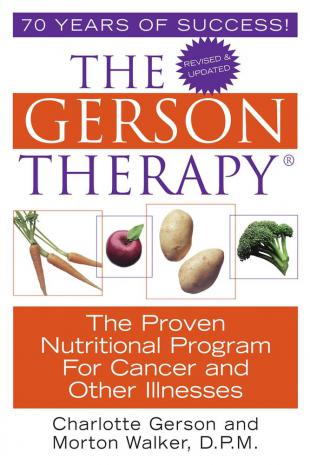
Breaking News
 The fraud being exposed in California is INSANE
The fraud being exposed in California is INSANE
 BlackRock Just Confirmed the Worst-Case Scenario
BlackRock Just Confirmed the Worst-Case Scenario
 You Don't Own Your Stocks the Way You Think You Do
You Don't Own Your Stocks the Way You Think You Do
 BLM 'KICKS BISON OFF THE LAND'? The Story the Headlines Didn't Tell
BLM 'KICKS BISON OFF THE LAND'? The Story the Headlines Didn't Tell
Top Tech News
 How underwater 3D printing could soon transform maritime construction
How underwater 3D printing could soon transform maritime construction
 Smart soldering iron packs a camera to show you what you're doing
Smart soldering iron packs a camera to show you what you're doing
 Look, no hands: Flying umbrella follows user through the rain
Look, no hands: Flying umbrella follows user through the rain
 Critical Linux Warning: 800,000 Devices Are EXPOSED
Critical Linux Warning: 800,000 Devices Are EXPOSED
 'Brave New World': IVF Company's Eugenics Tool Lets Couples Pick 'Best' Baby, Di
'Brave New World': IVF Company's Eugenics Tool Lets Couples Pick 'Best' Baby, Di
 The smartphone just fired a warning shot at the camera industry.
The smartphone just fired a warning shot at the camera industry.
 A revolutionary breakthrough in dental science is changing how we fight tooth decay
A revolutionary breakthrough in dental science is changing how we fight tooth decay
 Docan Energy "Panda": 32kWh for $2,530!
Docan Energy "Panda": 32kWh for $2,530!
 Rugged phone with multi-day battery life doubles as a 1080p projector
Rugged phone with multi-day battery life doubles as a 1080p projector
 4 Sisters Invent Electric Tractor with Mom and Dad and it's Selling in 5 Countries
4 Sisters Invent Electric Tractor with Mom and Dad and it's Selling in 5 Countries
Charlotte Gerson and Dr. Morton Walker explore the Gerson Therapy, a natural path to healing...

In an era where conventional medicine dominates, "The Gerson Therapy: The Proven Nutritional Program for Cancer and Other Illnesses" by Charlotte Gerson and Dr. Morton Walker presents a compelling alternative rooted in natural healing.
Developed by Dr. Max Gerson, a German-born physician who fled Nazi persecution, this therapy has been transforming lives for over six decades. Though initially lacking scientific validation, its success in reversing chronic and infectious diseases has made it a beacon of hope for those seeking holistic solutions.
Dr. Gerson's approach is built on detoxification and hyperalimentation – flooding the body with nutrients while eliminating toxins. His most famous patient, Dr. Albert Schweitzer, was cured of adult-onset diabetes at 75 after just six weeks of treatment. Schweitzer went on to live until 93, continuing his humanitarian work and even winning the Nobel Peace Prize.
Such remarkable recoveries underscore the therapy's potential, yet its journey has been fraught with resistance. In 1946, Dr. Gerson testified before the U.S. Senate, presenting ten cured cancer patients. The testimony was so persuasive that Sen. Claude Pepper (D-FL) called a press conference, but pharmaceutical and medical lobbies pressured journalists to ignore it.
Only ABC's Raymond Gram Swing reported on the therapy, leading to public excitement – until he was abruptly fired, silencing the breakthrough. Despite such suppression, the Gerson Therapy persisted, offering a lifeline to countless patients.
The therapy consists of three core components: A strict organic diet, high-dose nutrient supplementation and detoxification through coffee enemas. The diet is vegetarian, emphasizing raw juices—up to thirteen glasses daily—while avoiding salt, fats and proteins (except flaxseed oil). Cookware must be aluminum-free, and meals are prepared without additives.
Nutrient supplementation includes potassium, iodine and thyroid hormones to boost metabolism, alongside pancreatic enzymes to aid digestion and break down tumors. Coffee enemas, though controversial, are central to detoxification – stimulating the liver to expel toxins multiple times a day.
Critics argue that the therapy lacks rigorous clinical trials, yet anecdotal evidence and case studies paint a different picture. A retrospective study by the San Diego-based Gerson Institute and the University of California, San Diego found that 69 percent of melanoma patients on the therapy survived beyond five years – far exceeding conventional treatment outcomes.
Stories like Carla Shuford's, who overcame metastatic bone cancer at 15 and remains cancer-free 40 years later, or Dael Mintz, who defeated stage IV melanoma, highlight its transformative potential. But beyond physical healing, the Gerson Therapy embraces a holistic philosophy, addressing mental and emotional well-being.
Patients are encouraged to cultivate positivity, practice relaxation and lean on caregivers – who play a vital role in meal preparation, enemas and emotional support. This comprehensive approach aligns with emerging research on nutrition's role in disease prevention, echoing oncologist Dr. Mitchell Gaynor's belief that "the future is food."



